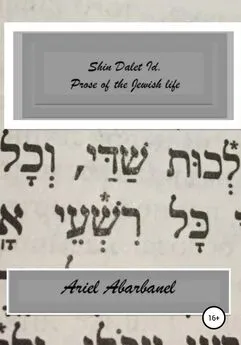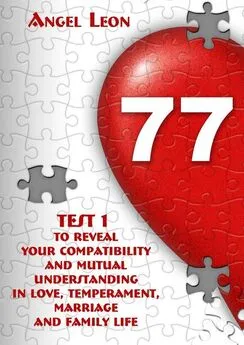Ariel Abarbanel - Shin Dalet Id. Prose of Jewish life
- Название:Shin Dalet Id. Prose of Jewish life
- Автор:
- Жанр:
- Издательство:неизвестно
- Год:2021
- ISBN:978-5-532-98542-1
- Рейтинг:
- Избранное:Добавить в избранное
-
Отзывы:
-
Ваша оценка:
Ariel Abarbanel - Shin Dalet Id. Prose of Jewish life краткое содержание
Shin Dalet Id. Prose of Jewish life - читать онлайн бесплатно ознакомительный отрывок
Интервал:
Закладка:
We wandered on through this city swelled with solidity and were silent. A stream of their thoughts and reflections went through the head of everyone. I don't know what Arthur thought, but I thought then that, unfortunately, he was definitely not interested in the question of choice.
Brit or not Brit. To be or not to be. Become or remain.
Returning from Strasbourg, I attended a Shabbat service in a synagogue in the Dutch city of Breda. After the service and meal, a conversation with the chairman of the local community and my neighbor Philip Susan was a kind of echo of the Strasbourg episode. He sadly complained that the "halachic" Jews threaten him with their departure from the community if their non-Jewish friends and non-proselytes were not allowed to pray with everyone in a minyan, on common law. So, do we have a hobby club or a house of prayer? And again the same enduring question:
To be or not to be ?! To stay or stay? May, with the help of Gd, everyone who truly wants to join the holy people will have enough strength and fulfill and listen, and be, and remain.
May the Almighty bless all of them and make them strong, strong and even stronger. For life and for the world. Forever and ever.
St. Petersburg mosaic
A distant close friend of mine, Marina Kalinina, a lively Komsomol girl without age, a kind heart, a lifesaver. I met her on a street where a rivulet with the cheerful name Tarakanovka once flowed.
Having gone through various periods of formations and downfalls in our Soviet country, it remained afloat. I got up in the bay of the former design institute, "split" into many different premises, leased for different firms and firms.
She called her firm “Wellness Center” and for years she continued this business, experiencing more adversity than success.
Then, in 1989, she met me at this street Tarakanovka, freed, who had gone through a "small circle" of walking through the agony of different camps and prisons. I stood confused, in slippers, from the colony, in outdated things six years ago, awkward, with a trash can, as if not yet conscious of where I was. Then, in May 1989, she showed genuine kindness and sympathy to me, communicating simply and openly.
This is how she stayed for me. For ten years we have not seen each other, only occasionally calling back. And only in the next century, 13-14 years after the first meeting, it happened to us to meet again.
I hope these conversations were as enjoyable for her as they were for me. One thing clearly worried her, though. She could not in any way process the thought that I, in every next meeting, strikingly, in her opinion, change. She could not believe in sincerity and see the pattern. Being very good about this man, I wrote the following parable for her.
Grown in the slums
The old gardener could no longer work on his garden and went to live in the city.
He settled in one of the slums of a huge gray city. Once cleaning his old coat, he reached into his pocket and found there old dried grains. Yes, ordinary seeds. Only those seeds were all different, from different plants, and from which – the old man could no longer know.
– Well, I'll plant them in our yard, we'll see what grows.
The old man took these seeds and, on a piece of earth, exposed from the swollen and cracked asphalt, planted them in the soil.
The old man lived in a house that stood face to face to another house. Houses were also crowded on the sides. "Well" – that was the name of these courtyards in that huge, damp city.
The sun barely broke through the walls – in this country sunny days were rare – only in the evening hours before sunset did it manage to touch the ground and warm the sprouts that were making their way.
As time passed, the plants grew, and at first they hardly differed from each other. All were gray and faded.
Then, after some time, one could already distinguish the emerging thistle, a bush that took the shape of a nettle, a frail aspen. One tree remained unrecognized.
From the very beginning, they tried to push this plant incomprehensible to others, to block it from the life-giving light.
The thistle pricked with thorns, other plants burned, cast a shadow, strangled the young shoot with their roots. But the tree continued to live.
Thin and dusty, it reached for the light, greedily grabbing the rare rays of the sun.
It was unsightly: some branches were broken off by passers-by and the wind, some leaves, not having time to straighten out, wilted, the bark cracked from lack of moisture.
But here's a miracle: that incomprehensible force that sat in the seed, pushed and pushed the growth of the tree up to the sun.
It was changing all the time: it seemed like an unnecessary shrub, then, releasing fresh green leaves again, pleased the eye.
The gardener has already lost interest in all of his plantings. I forgot about them and even stopped watering.
But all the same force forced the tree to stretch upward, it swallowed drops of rain, exposing the leaves to the wind. Stretched towards the longed-for sun.
Almost nothing remained around from the former neighbors: dried stalks and scraps of yellow-brown grass.
One day an old man walked past the courtyard and was stunned: a thin and flexible tall tree stood alone and proudly. It grew so that the upper leaves shimmered like an emerald in the sun; birds sat on the branches and sang the hymn of life. Its branches became so strong that the wind no longer broke them, but only played with them as equals.
The old man wiped away a tear and thought that, perhaps, this is a good gift for both his labors and his old age.
He thought about a seed the size of a speck of dust, and about what power of life can grow that will break out of the darkness of stones and, despite the gray, grave environment, will live for the sake of the sun and light for the sake of warm life-giving rays.
Live for the light, wherever you were, the gardener thought, live for the light.
Doves
Once upon a time there were two doves. Mother and daughter. Beila and Rosette. They lived alone. Rosette's father, a beautiful, dove, once got on a huge ocean liner, which transported him to another country, to the other end of the globe, and he never managed to return from there. He found himself another dove and lived with her in peace and happiness. From this love they had a cute little bird girl. So they lived in a huge new city called New Amsterdam.
And Rosette stayed with her mother in her two years. Mom loved her Rose very much. In tides of love, she hugged her with her wings and kissed her with her beak. She kissed so passionately that these manifestations of maternal love left scratches, abrasions, bruises, torn feathers. Rosette loved her mother very much, but she suffered without a father. After passing the chick period and becoming a teenager, her longing for her father became so unbearable that she went to him across the ocean.
She lived with her father for many years. She learned the language of that country well, but did not receive the desired and such longed-for warmth. Most of her dear father's love went to her little sister. Rosette's heart was drawn more and more back to her mother, and she began to gather back on the long journey across the ocean.
Конец ознакомительного фрагмента.
Текст предоставлен ООО «ЛитРес».
Прочитайте эту книгу целиком, на ЛитРес.
Безопасно оплатить книгу можно банковской картой Visa, MasterCard, Maestro, со счета мобильного телефона, с платежного терминала, в салоне МТС или Связной, через PayPal, WebMoney, Яндекс.Деньги, QIWI Кошелек, бонусными картами или другим удобным Вам способом.
Интервал:
Закладка:



![Shin_Stark - В подземелье я пойду, там свой level подниму X [СИ]](/books/1056201/shin-stark-v-podzemele-ya-pojdu-tam-svoj-level-po.webp)
![Shin Stark - В подземелье я пойду, там свой level подниму VIII [СИ]](/books/1149356/shin-stark-v-podzemele-ya-pojdu-tam-svoj-level-po.webp)

